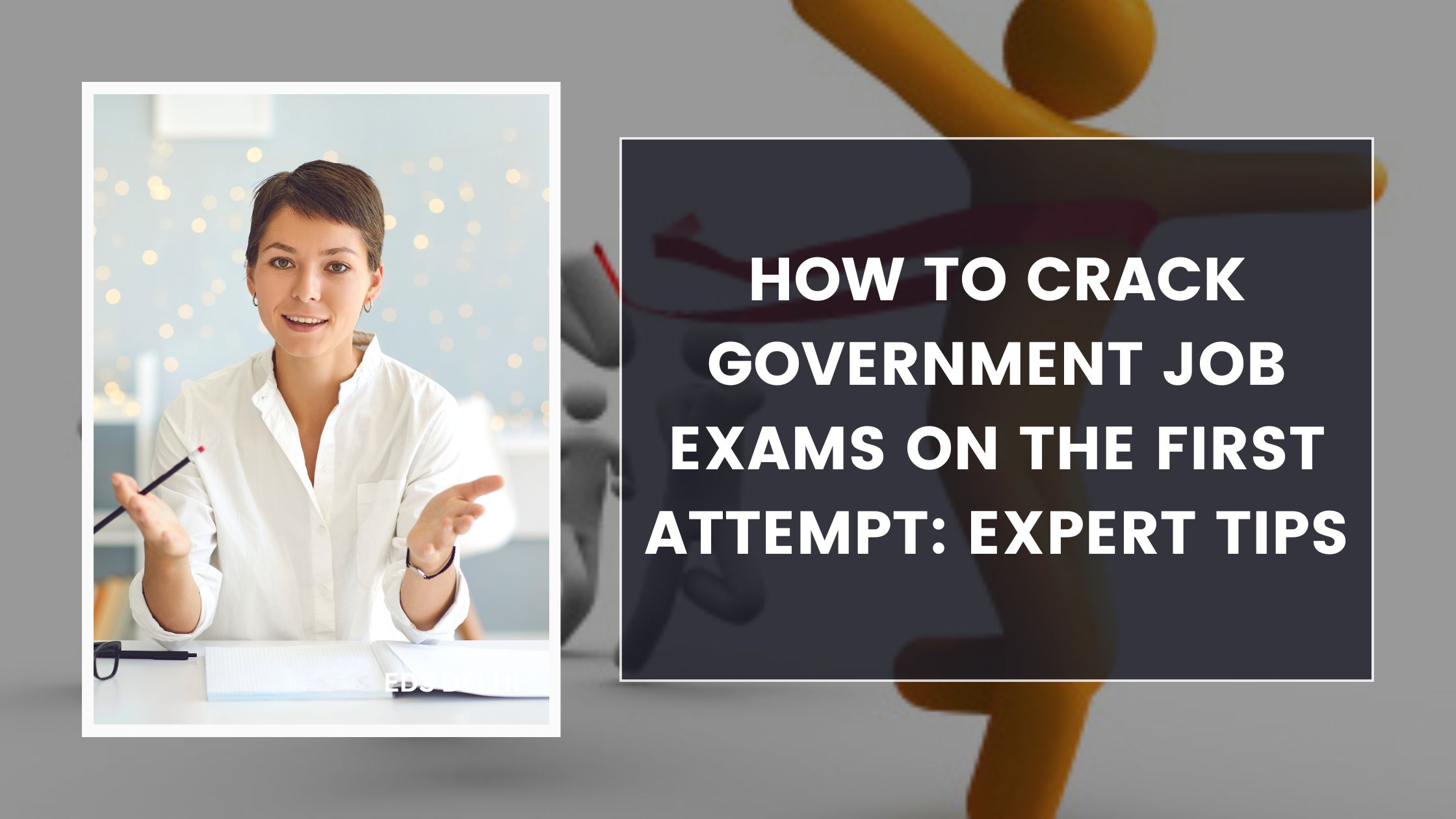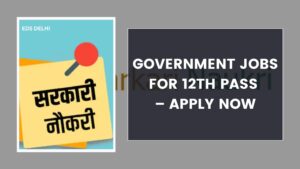Every year, millions of candidates appear for government job exams in India. These exams, known for their competition and tough selection processes, can be intimidating. But here’s the good news—many aspirants do crack government job exams on their very first attempt. The key lies in planning, consistency, smart study, and using the right resources.
Whether you’re aiming for UPSC, SSC, banking, or railway exams, this guide will show you how to boost your chances of success with expert-backed strategies.
1. Know Your Exam Inside Out
Understand the Syllabus and Exam Pattern
Start by thoroughly going through the official syllabus and exam structure of the exam you’re targeting.
- Break it into subjects and topics
- Check marks distribution and negative marking
- Identify qualifying and scoring sections
For example:
- UPSC requires deep conceptual clarity and current affairs
- SSC CGL and IBPS focus on speed and accuracy in reasoning and math
Expert Tip:
Use AI-powered apps like Testbook or Oliveboard to compare exam trends and previous year cut-offs for each topic.
2. Make a Realistic Study Plan
Create a Daily & Weekly Schedule
You need a plan that is realistic, consistent, and flexible. Allocate time based on your strengths and weaknesses.
Your Weekly Study Plan Can Look Like:
| Day | Morning (2 hrs) | Afternoon (2 hrs) | Evening (2 hrs) |
|---|---|---|---|
| Mon | Quantitative Aptitude | Reasoning | English Practice |
| Tue | GS/Current Affairs | Mock Test | Revision |
| … | … | … | … |
Expert Tip:
Use tools like Google Calendar or Habitica to create your study schedule and track your habits using reminders.
3. Choose the Right Study Material
Having the right books and online content is more important than having too many.
Recommended Resources:
- UPSC: NCERTs, Laxmikant (Polity), Vision IAS notes
- SSC CGL: Rakesh Yadav (Math), SP Bakshi (English), Lucent GK
- Banking Exams: Arun Sharma (Quant), Banking Awareness by Arihant
Expert Tip:
Use AI-curated content from apps like Unacademy AI, which tailors your course recommendations based on your past performance.
4. Practice Mock Tests Regularly
Mock tests are your best tool to simulate real exam pressure.
Benefits:
- Improves time management
- Highlights weak areas
- Builds exam temperament
How Many Mock Tests?
Aim for 2–3 full-length mocks every week in the last 2–3 months before the exam.
Expert Tip:
Use adaptive mock platforms like Embibe or Gradeup, which show you which questions take the most time and how you compare to toppers.
5. Master Time Management
You may know the answers—but without speed, it’s useless in a timed test.
Techniques:
- Use the Pomodoro Technique (25 minutes study + 5 min break)
- Practice sectional timing
- Attempt easy questions first, tough ones later
Expert Tip:
Use AI test analyzers to track how long you take per question and reduce time-wasting patterns.
6. Strengthen Your Basics
Don’t rush into solving tough problems without mastering the basics.
Start from Fundamentals:
- Strengthen grammar rules before doing RC passages
- Practice basic arithmetic before moving to DI sets
- Understand constitutional basics before current affairs
Expert Tip:
Watch concept-based YouTube lectures or use AI-powered tutors like ChatGPT to explain tough concepts in simple language.
7. Make Notes and Revise Regularly
Types of Notes:
- Short notes for formulas
- One-liners for GK
- Mind maps for theory subjects
Revise them every week, especially current affairs and important facts.
Expert Tip:
Use digital flashcards apps like Anki that use spaced repetition to help retain information better.
8. Focus on Current Affairs (For UPSC, Banking, SSC)
Current Affairs are crucial in many exams. Read newspapers or use apps that curate daily news.
Best Sources:
- The Hindu / Indian Express
- PIB & Yojana summaries
- AffairsCloud, GKToday
Expert Tip:
Use AI summarizers like Inshorts AI or ChatGPT to condense long articles into key points.
9. Stay Consistent and Motivated
Consistency is key, especially in long preparation cycles. Avoid burnout.
How?
- Set small daily goals
- Track your weekly progress
- Reward yourself for achieving targets
- Stay connected with peer groups
Expert Tip:
Use AI-powered progress trackers (like TargetTestPrep or Smartkeeda) that adjust your plan based on your performance.
10. Take Care of Your Health and Mindset
A healthy body and mind are essential for productive learning.
Tips:
- Get 7–8 hours of sleep
- Avoid junk food
- Meditate or exercise daily
- Take short breaks to avoid fatigue
Expert Tip:
Use wellness apps like Headspace or Calm, or take 5-minute guided meditations to refresh your mind.
Quick Checklist: First-Attempt Success Strategy
- Understand the syllabus
- Create a realistic study plan
- Use the right materials
- Solve mocks weekly
- Strengthen fundamentals
- Revise regularly
- Stay consistent and healthy
FAQ’s
1. Is it really possible to crack a government exam in the first attempt?
Yes, many aspirants crack exams like UPSC, SSC, and IBPS in their first attempt with smart strategy, discipline, and consistent effort.
2. How much daily study time is required?
6–8 focused hours per day are ideal, but quality matters more than quantity.
3. Can AI tools really help with preparation?
Absolutely. AI helps with personalized study plans, performance analysis, and faster learning.
4. Should I join coaching or self-study is enough?
It depends on your learning style. Self-study with the right resources and guidance can also be very effective.
Conclusion
Cracking a government exam in the first attempt is challenging but absolutely achievable with the right mindset, tools, and strategy. Remember, it’s not about studying 14 hours a day—it’s about studying smart, practicing effectively, and staying consistent.
Use technology to your advantage, focus on fundamentals, and most importantly—believe in yourself. Your success story starts with your first serious step. Start today.















